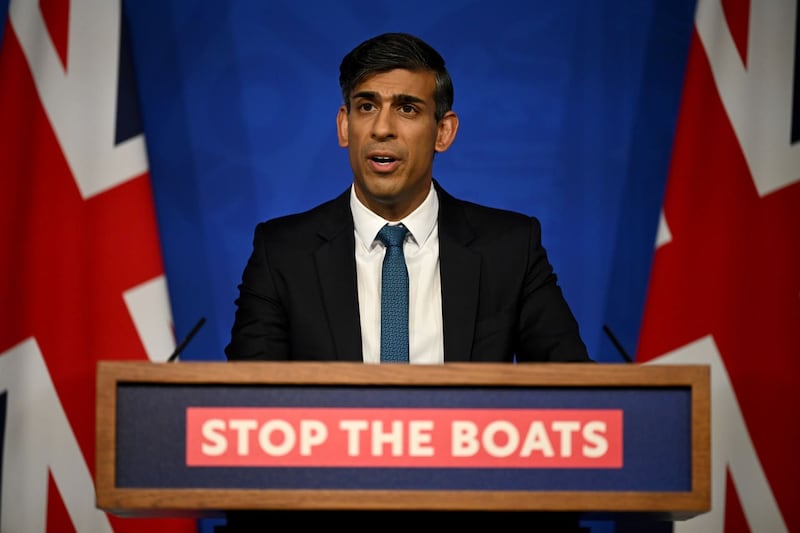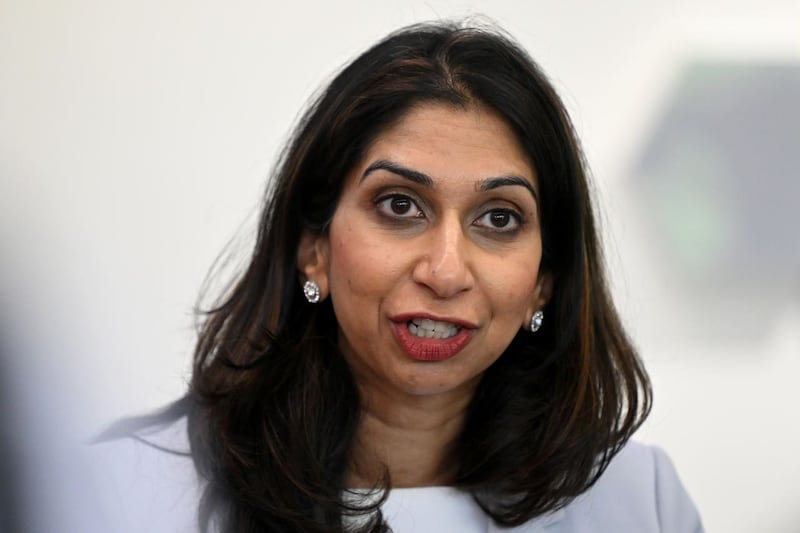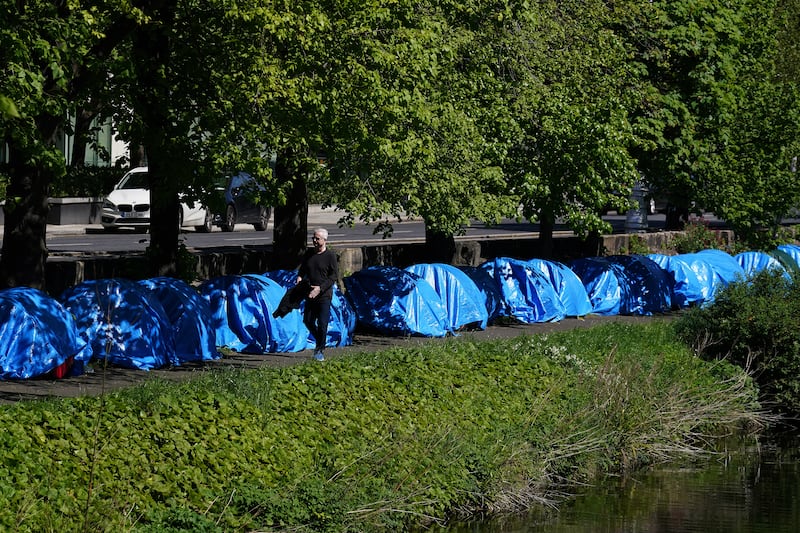Negotiations on a new treaty with Rwanda over the UK’s stalled deportation policy are in their final stages, according to the Home Office’s top civil servant.
Permanent secretary Sir Matthew Rycroft told MPs officials were in the capital Kigali “as we speak” as they put the “finishing touches” to the talks after the Supreme Court ruled against the plan to send some asylum seekers on a one-way trip to the African nation.
The Government now faces questions over how much it has already paid Rwanda, after MPs were told they would have to wait months to learn if it was more than the £140 million previously disclosed.
Sir Matthew would not say if any additional payments had since been made when pressed on the matter, instead saying ministers had decided they would not reveal that information until the summer.
Speaking to the Commons Home Affairs Committee on Wednesday, he said: “The negotiation of that treaty is ongoing. In fact, there’s a Home Office and wider team in Kigali as we speak, putting the finishing touches to that negotiation. And I think it’d be premature to say anything about the content of that.”
His comments come a day after Downing Street said Rishi Sunak was still considering how to make sure the plan was legally watertight amid reports Government lawyers warned attempting to opt out of international rights treaties could delay flights.
Asked by committee chairwoman Dame Diana Johnson whether “anything else had been given to the Rwandan government”, in addition to the confirmed £140 million, he replied: “So there are additional payments each year and ministers have decided that the way to keep you and other colleagues in Parliament updated is once a year to set out the total additional payments to the government of Rwanda.

“And we’ll do that in the annual report and accounts. So the figures that you set out, the £120 million (initial payment when the deal was initially signed) plus £20 million are the payments from the 2022 to 2023 financial year and then any payments in 2023/24, we will announce in the normal way in the next annual report.”
Asked again to confirm whether any further payments had already been made, Sir Matthew said: “We will announce that in the normal way next summer.”
The Government promised a treaty with Rwanda and emergency legislation in Parliament after the Supreme Court ruling.
No 10 had said in the hours after the court defeat on November 15 that the treaty would be laid before Parliament in the “coming days” so deportation flights could take off “as soon as possible”.

Alongside the new treaty with Rwanda, domestic legislation was planned to ensure that flights could take off without further legal challenges.
But the Prime Minister’s official spokesman said policy options were still being considered.
The Government still hopes the first flights carrying asylum seekers to Rwanda will take off by the spring.
Mr Sunak has been urged, including by sacked home secretary Suella Braverman, to adopt tough legislation that includes “notwithstanding” clauses that can prevent judges from applying protections in the Human Rights Act and the European Convention on Human Rights (ECHR) to asylum cases.
But The Times reported that the Government has received advice from its lawyers that says instructing the courts to ignore the ECHR risks opening up more avenues for migrants to challenge the legality of deportation flights, on the basis that it would breach Britain’s convention obligations.








